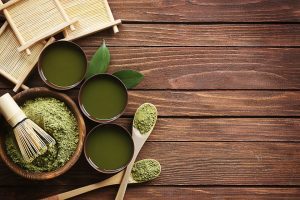It’s happened to everyone at some point: you finish having sex or masturbating and then, when you try to pee, nothing comes out. It’s a frustrating and uncomfortable experience that can leave you wondering what’s going on down there. But have no fear, because the surprising truth about why you can’t pee after ejaculating is actually quite simple. In this article, we’re going to explore the reasons behind this common occurrence and provide you with some helpful tips for getting back on track. So if you’re tired of feeling like you’re stuck in the bathroom after getting busy, keep reading to find out more.
The Surprising Truth About Why You Can’t Pee After Ejaculating
Have you ever experienced the feeling of needing to pee after ejaculating, but you just can’t seem to get the urine flowing? If so, you’re not alone. This phenomenon is actually quite common, and it can be quite frustrating. But why does it happen?
The Anatomy of Ejaculation
To understand why you might have difficulty peeing after ejaculating, it’s important to first understand the anatomy of ejaculation itself. During ejaculation, semen is propelled from the testicles through the vas deferens and into the urethra. The urethra is the tube that carries urine from the bladder out of the body.
The Refractory Period
After ejaculation, men enter a period known as the refractory period. This is a time when the body is recovering from the intense physical and emotional experience of orgasm. During this time, it can be difficult to achieve another erection, and there may be a delay before the body is able to produce more semen.
The Bladder and Urethra
While the refractory period is occurring, the bladder may start to fill with urine. However, the urethra is still lined with semen, which can make it difficult for urine to pass through. This can create a feeling of needing to pee, but being unable to do so.
The Solution
Fortunately, there are a few things you can do to help ease the discomfort of needing to pee after ejaculating. One of the most effective things you can do is to wait a few minutes before attempting to pee. This will give the urethra time to clear out any remaining semen, making it easier for urine to pass through.
Other Factors That Can Affect Urination
It’s worth noting that difficulty urinating after ejaculation isn’t always due to semen blocking the urethra. Other factors, such as an enlarged prostate, urinary tract infections, or nerve damage, can also affect urination. If you experience ongoing difficulty with urination, it’s important to talk to your doctor.
Preventing Urinary Tract Infections
One way to reduce the risk of urinary tract infections is to urinate after sex. This can help to flush out any bacteria that may have entered the urethra during sexual activity. It’s also important to practice good hygiene, such as washing the genital area regularly and avoiding the use of harsh soaps or douches.
The Bottom Line
While the feeling of needing to pee after ejaculating can be uncomfortable, it’s usually nothing to worry about. By waiting a few minutes and practicing good hygiene, you can help to ease the discomfort and reduce the risk of urinary tract infections. And if you experience ongoing difficulty with urination, be sure to talk to your doctor to rule out any underlying medical conditions.
Understanding the Importance of Urination
While difficulty urinating after ejaculation is not always a cause for concern, it is important to understand the significance of regular urination. Urination is a natural process that helps to eliminate waste and excess fluids from the body. When urine is not released from the body regularly, it can lead to a buildup of bacteria in the bladder, which can cause infections.
In addition to causing discomfort, urinary tract infections can also lead to more serious health problems, such as kidney infections. If you experience symptoms of a urinary tract infection, such as pain or burning during urination, cloudy or bloody urine, or a frequent urge to urinate, it is important to seek medical attention promptly.
The Role of Hydration
Another important factor to consider when it comes to urination is hydration. Drinking enough water and other fluids throughout the day can help to keep the bladder healthy and prevent urinary tract infections. When the body is dehydrated, urine can become concentrated, which can cause irritation and inflammation in the bladder.
To ensure that you are drinking enough fluids, aim to consume at least eight glasses of water per day. You can also incorporate other hydrating beverages, such as herbal tea or coconut water, into your daily routine.
Healthy Habits for Urinary Health
In addition to drinking plenty of fluids, there are other healthy habits you can adopt to promote optimal urinary health. These include:
– Practicing good hygiene: Be sure to wash your genital area regularly with mild soap and water. Avoid using harsh soaps or douches, as these can disrupt the natural balance of bacteria in the vagina and increase the risk of infection.
– Urinating regularly: Try to urinate at least once every three to four hours, or whenever you feel the urge to go. Avoid holding in urine for extended periods of time, as this can increase the risk of infection.
– Wiping from front to back: When wiping after urinating or having a bowel movement, be sure to wipe from front to back. This can help to prevent bacteria from the anus from spreading to the urethra.
By adopting these healthy habits, you can help to keep your bladder and urinary tract healthy and reduce the risk of infection or other complications. If you experience ongoing difficulty with urination or other symptoms, be sure to talk to your doctor to determine the underlying cause and develop a treatment plan.
Frequently Asked Questions
Why can’t I pee after ejaculating?
After ejaculation, the muscles in the bladder and urethra contract, which can make it difficult to empty the bladder. This is known as post-ejaculatory urination difficulty, or PEUD.
Is PEUD a common problem?
Yes, PEUD is a common problem among men. Studies show that up to 91% of men experience this issue at least once in their lifetime.
What can I do to alleviate PEUD?
One of the best ways to alleviate PEUD is to take your time when urinating. Relax your muscles and take deep breaths. You can also try drinking more water to increase the volume of urine, which can make it easier to empty your bladder.
Key Takeaways
- PEUD is a common problem among men.
- It occurs because the muscles in the bladder and urethra contract after ejaculation.
- Relaxing your muscles and taking your time when urinating can help alleviate PEUD.
- Drinking more water can also help increase the volume of urine, making it easier to empty your bladder.
Conclusion
PEUD is a common problem among men that can be caused by the contraction of muscles in the bladder and urethra after ejaculation. However, there are several ways to alleviate this issue, including taking your time when urinating and drinking more water. If you experience frequent or severe PEUD, it’s important to talk to your healthcare provider to rule out any underlying health conditions.





